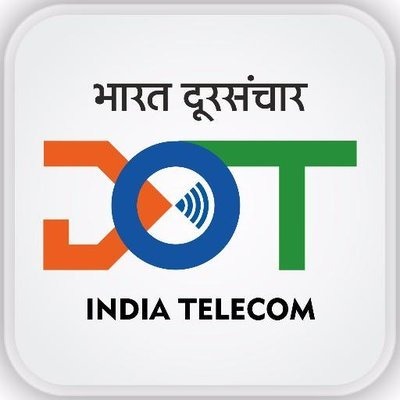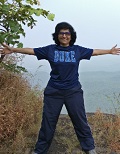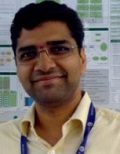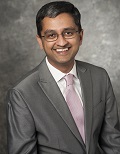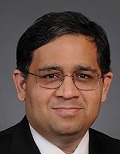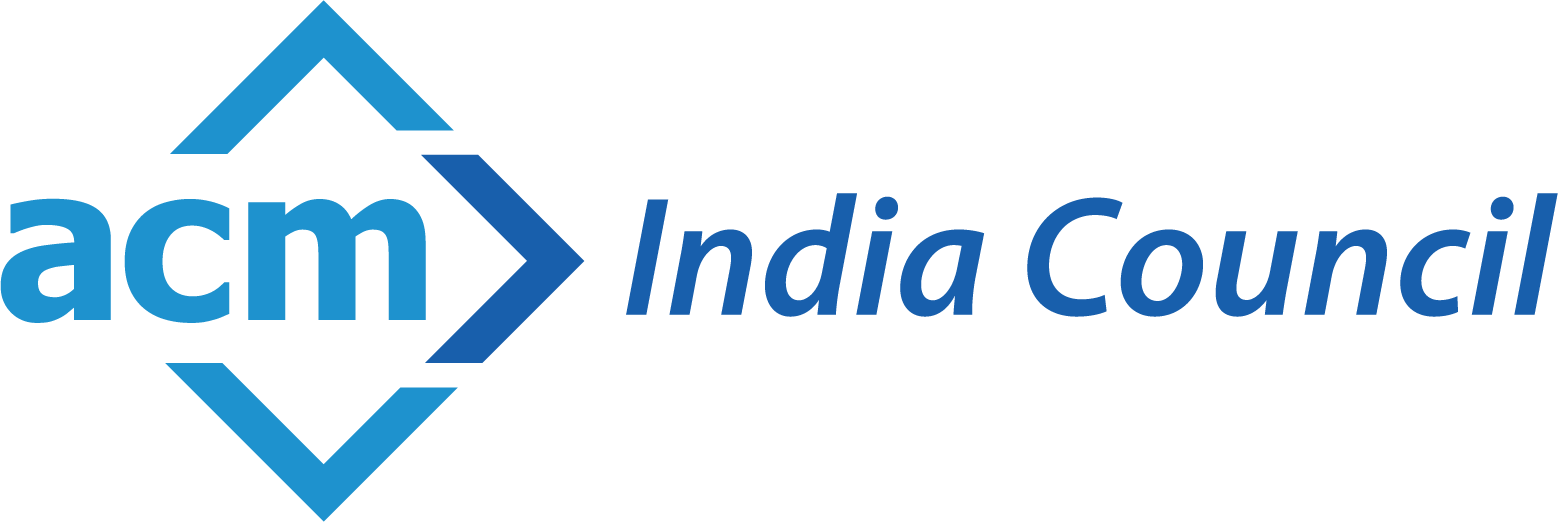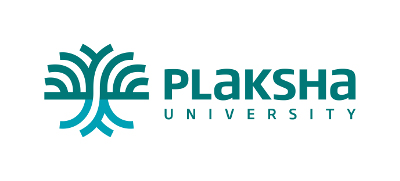Invited Speakers
Varsha Apte
IIT Bombay, IndiaVisit Homepage
Programming autograding at scale is a requirement for many online learning applications. This paper is a case study report of the hunt for the bottleneck that was hindering the multicore scalability of one such autograder - EvalPro. EvalPro is the autograding module of our in-house online learning appli- cation Bodhitree, and is used regularly for program autograding in our introductory programming course. A baseline experiment found that the maximum autograding throughput provided by EvalPro did not increase much beyond that provided with 8 cores. We however had larger servers (e.g. 64 core machines) for use for a scaled up deployment of the application. To address this issue, we followed an empirical approach first, hypothesizing various bottlenecks and checking whether removing them in- creased scalability. We followed this with profiling experiments on microbenchmarks that finally helped us identify the bottleneck: an off-the-shelf program not a part of our application, but was simply used by our application. Our main conclusions from the study are that bottleneck identification studies remain complex and time consuming and must be done systematically, and that stable well-known, off the shelf programs may also not display multi-core scalability, as they may not have been built for such a purpose.
Varsha Apte is a Professor and currently Head of the Department of Computer Science and Engineering at IIT Bombay She completed her M.Sc. from Pune University in 1989, and PhD. from Duke University in 1994, both in Computer Science. After her Ph.D., she joined the Teletraffic Theory and Performance Analysis department in AT&T Bell Labs as Member, Technical Staff, which later became the Network Design and Performance Analysis department of AT&T Labs. She joined as faculty in the Computer Science and Engineering Dept, IIT Bombay in 2002. During the academic years 2009-2011, she was Visiting Faculty at the Computer Science and Automation Department, Indian Institute of Science, Bangalore. While in Bangalore, she also worked at IBM Research Labs as part-time Visiting Researcher from June 2009-May 2010. From February 2016 to February 2019, she served as the Head of the Network and Computing Infrastructure department (called “Computer Centre”) of IIT Bombay. Her areas of interest are performance analysis of computing systems and networks and building applications for online programming education.
Baek-Young Choi
University of Missouri - Kansas City, USAVisit Homepage
Education is an essential component of human life, both informal or formal education of K-12 and college. This Covid-19 pandemic, together with recent technology advancements, has been dramatically changing many aspects of our lives, especially our education. Many longstanding questions and debates in learning and teaching, such as effective modes of education, appear to be clear now, and further questions are being opened up. Yet digital divide of education may have been widened. In this paper, we examine the changes of perceptions on learning modes discovered during this pandemic, the evolving roles of Learning Management Systems, the use of technologies in education, including Artificial Intelligence and Virtual Reality, as well as the inequity issue of education. We also present our recent project on technology education for women formerly incarcerated. The open questions and future directions of educations will also be discussed.
Baek-Young Choi is a Professor at the University of Missouri – Kansas City (UMKC). She received her Ph.D. degree in Computer Science and Engineering from the University of Minnesota, Twin Cities. She published three books on network monitoring, storage systems, and cloud computing. She has been a faculty fellow of the National Aeronautics and Space Administration (NASA), U.S. Air Force Research Laboratory’s Visiting Faculty Research Program (AFRL-VFRP) and Korea Telecom’s - Advance Institute of Technology (KT-AIT). She is an associate editor for IEEE Consumer Electronics Magazine and was an associate editor for IEEE Internet-of-Things Journal, Springer Journal of Telecommunication Systems, Elsevier Journal Computer Networks. Her research interests generally lie in the broad area of networking and communications, with specific emphasis on Internet-of-Things, software-defined networking, cybersecurity, smart city technologies. She is a senior member of ACM and IEEE, and a chair of IEEE Women in Communications Engineering (WICE).
Satish K.
Nokia Bell Labs, Bangalore, IndiaVisit Homepage
While the pressure significantly increases in acting towards energy efficiency of communication networks, there is the ever-increasing demand faster and more capacities to support a plethora of applications across all industrial and societal sectors driven by exponential traffic growth. Besides, there is a growing concern towards the adverse impacts of climate change, scarcity of raw materials, the rising cost of energy, as well as inequity and bias into the use of technology. Therefore, in additional to the conventional KPIs, key dimensions need to be considered for now and in the future is the environmental footprint, energy consumption, resource usage, as well as inclusivity and fairness. The talk discusses the opportunities, design aspects, challenges and trade-offs to improve energy efficiency and responsible use of technology, in building sustainable networks for the future.
SATISH Kanugovi (Senior Member, IEEE) received B.E degree from Delhi College of Engineering, University of Delhi, India. Currently, he heads the Nokia Standardization and Industry Engagements in the APAC region. He is a Distinguished Member of Technical Staff (DMTS) and in his earlier roles, he has been part of Robotic Systems Research at Enterprise and Industrial Automation Department, Nokia Bell Labs, and Mobile Networks CTO focusing on wireless research and standardization. He has around 23 years of experience in solutions architecture, including conceptualization, standardization and productization of innovative ideas into products. He has been involved in wireless standards development as a delegate in 3GPP/3GPP2 and author of multiple RFC/drafts at IETF focusing on the areas of interworking and multi-access. He has authored and co-authored several publications and been granted numerous patent families.
Salil Kanhere
UNSW, Sydney, AustraliaVisit Homepage
In recent years, there has been an increasing interest in incorporating blockchain for the Internet of Things (IoT) to address the inherent issues of IoT, such as single point of failure and data silos. However, blockchain alone cannot ascertain the authenticity and veracity of the data coming from IoT devices. The append-only nature of blockchain exacerbates this issue, as it would not be possible to alter the data once recorded on-chain. Trust and Reputation Management (TRM) is an effective approach to overcome the aforementioned trust issues. However, designing TRM frameworks for blockchain-enabled IoT applications is a non-trivial task, as each application has its unique trust challenges with their unique features and requirements. In this paper, we present our experiences in designing TRM frameworks for various blockchain-enabled IoT applications to provide insights and highlight open research challenges for future opportunities.
Salil Kanhere is a Professor in the School of Computer Science and Engineering at UNSW Sydney, where he leads the Information Security and Privacy Research Group (IsPri). He is also affiliated with the UNSW Institute for Cyber Security (IFCYBER). His research is broadly at the intersection of cybersecurity, distributed computing, cyber-physical and IoT systems and pervasive computing. He has co-authored more than 300 peer-reviewed articles on these topics and has received 8 best paper awards. Salil received the Friedrich Wilhelm Bessel Research Award (2020) and the Humboldt Research Fellowship (2014), both from the Alexander von Humboldt Foundation in Germany. He has held visiting positions at I2R Singapore, Technical University Darmstadt, University of Zurich, Graz University of Technology and RWTH Aachen. He is a Senior Member of the IEEE and ACM, an ACM Distinguished Speaker, and an IEEE Computer Society Distinguished Visitor. He serves as the Editor in Chief of the Ad Hoc Networks journal and as an Associate Editor of IEEE Transactions on Network and Service Management, Computer Communications, and Pervasive and Mobile Computing. He has served as General Chair and Program Chair for several IEEE/ACM international conferences and is on the advisory board of three SMEs. Salil co-authored a book titled Blockchain for Cyberphysical Systems published by Artech House.
Gerald Karam
Nokia Bell Labs, USAVisit Homepage
The onset of the 6G era in telecommunications, touted to launch in 2030, is hoped to serve many masters and deliver an unparalleled improvement in capabilities, applications, intelligence, and indeed liberate human potential. The vision of 6G incorporates new radio frequencies and technologies, the integration of sensing, cognitive methods defining both network functions and their management, and new networking approaches for a broader scope of applications and distribution. The challenges for inventors lies in both physical devices and a substantive improvement in the development of functions implemented by, and managed, with software. The algorithms (including dynamic solutions based on Artificial Intelligence and Machine Learning), protocols, and architecture evolutions will bring together the most advanced software systems ever imagined for telecommunications. Yet, the business of companies building and operating these next generation platforms requires a huge investment, and 6G will exceed all others with its breadth and complexity. This talk outlines one possible timeline of technological impact based on the pace of invention, investment, global context, and the broad goals of 6G. From this, follows a vision of the critical methods in automation, security and networking that we believe will be central to bringing the dream of 6G to a reality.
Gerald M. Karam (Senior Member, IEEE) received a BASc (1982) in electrical engineering from University of Ottawa, Ottawa, Canada, and an MASc (1984) and a PhD (1987) from Carleton University, Ottawa, Canada, also in electrical engineering. After graduation, he was on faculty with the Dept. of Systems and Computer Engineering, at Carleton University, leaving in 1995 having the title of Associate Professor (tenured). He joined AT&T Bell Labs in 1995 and over the next 25 years held a variety of roles in AT&T Labs including Executive Director of Research, Distinguished Technical Staff Member, and Assistant Vice President. After retiring from AT&T, in 2019, and a brief stint consulting for CableLabs, he joined Nokia Bell Labs in Murray Hill, New Jersey in 2020 where he is a Principal Researcher. He has 30 issued patents, more than 35 referred publications, and one textbook (Pearson). Current research interests and activities include 6G network systems, communications software architecture, and network services and management technology. Dr. Karam is an AT&T Fellow, and recipient of an AT&T Science and Technology Medal. IEEE recognitions include an IEEE Millennium Medal, IEEE Regional Activities Board Innovation Award.
Debdoot Mukherjee
Meesho, IndiaVisit Homepage
Two-sided online marketplaces with producers and consumers of content, goods and services have an unprecedented influence on what content people consume on social media (e.g., Tiktok, Netflix, Spotify), the products that they purchase on e-commerce platforms (e.g., Amazon), how they travel (e.g., Booking.com, AirBnB, Uber) and so on. The recommender systems, which power these platforms are not only key to shaping the customer experience and monetisation on the platforms but also control the distribution of wealth on the economies thriving on them. Historically, the design of such recommender systems have focused entirely on the consumers and how to serve relevant items to them in order to maximize actions such clicks and conversion. However, such a design invariably leads to an unfair distribution of exposure to the producers, which is continually aggravated over time leading to strong Mathew effects on the supply side. As a consequence, dissatisfied producers churn from the platform, which results in less competition and ultimately leads to lack of choice and price benefits for the consumers. This talk discusses the importance of balancing the goals of producers and consumers in recommender systems in order to ensure long term health of online platforms and the trade-offs that may be needed toward short term goals.
Debdoot is Chief Data Scientist at Meesho, where he leads the AI team that enables every pillar of the e-commerce marketplace to be smarter and more efficient. At Meesho, AI/ML helps increase demand by recommending the right products to every user at every touch point, empowers suppliers to effectively catalog and price products and optimizes the supply chain to improve fulfilment efficiency. Debdoot has over 15 years of experience in building innovative AI products in social, mobile and e-commerce domains. Prior to Meesho, Debdoot was VP & Head of AI at ShareChat & Moj, where he led teams in the areas of recommender systems, multimodal learning and camera tech. Before that, he set up the AI team at Hike Messenger that developed novel methods for conversation modeling in Indic languages, massive scale social graph mining etc. Previously, he led ML efforts at Myntra for applications such as personalized search, product discovery, marketing and merchandising intelligence. Debdoot started his career in the domains of enterprise search and information extraction at IBM Research. Debdoot is a gold medallist from IIT Delhi from where he graduated with a Master’s degree in Computer Science & Engineering.
Supratik Mukhopadhyay
Louisiana State University (LSU), USAVisit Homepage
We, homo-sapiens, arrived on this planet around 300,000 years back. Since that time, we were sharing this planet with other species of plants and animals. However, due to our greed, and activities resulting from that, we have been directly responsible for the destruction of our environment and ecosystem. Even today, in mindless pursuit of wealth, we invest in the “carbon bubble”. In this talk, we will present our recent work on the use of AI for helping prevent environmental disasters. We will also present AI-based financial models that promote divestment from the carbon bubble.
Supratik Mukhopadhyay is full Professor at Louisiana State University (LSU) and leads the Artificial Intelligence Initiative at LSU. Prof. Mukhopadhyay led the DeepDrug team (DeepDrug (lsu.edu)) for automated drug discovery using Artificial Intelligence to the semifinals of AI XPRIZE (among 147 teams worldwide), the world’s top competition for using AI for solving moonshot challenges (DeepDrug | AI XPRIZE). Combination therapy discovered by the DeepDrug Artificial Intelligence Platform for COVID-19 has undergoing human studies at the Riverside University Health System, California (Riverside University Health System Medical Center, Skymount Medical Begin U.S. Clinical Trial for COVID-19 Oral Therapeutics Discovered Using Artificial Intelligence | County of Riverside (rivco.org)) and in Ukraine. It took 13 months from inception to human studies, which is one of the fastest in the pharmaceutical world for a combination therapy. It has also been approved for human trials by MHRA in the United Kingdom (Skymount Medical Receives UK MHRA Approval to Test New (globenewswire.com)). DeepDrug is world’s only AI platform to discover a nutraceutical and bring it to market (Home - Inhibinol). Apart from Drug Discovery, Prof. Mukhopadhyay has worked on AI for environmental challenges, education, port and supply chain security, satellite image understanding, video and image analytics, design of intelligent buildings and transportation systems, wildfire prediction and detection, conservation of endangered species, intelligent cyber-physical-human systems, etc. His DeepSat framework for satellite imagery understanding forms the basis of NASA Earth Exchange (NEX) (see DeepSAT: A Deep Learning Approach to Tree-Cover Delineation in 1-m NAIP Imagery for the Continental United States - NASA Technical Reports Server (NTRS)). In the last 13 years, Prof. Mukhopadhyay has received more than $9 million in research grants. His research has been funded by the NSF, DARPA, ARO, ONR, NGA, NASA, DOE, USDOT, USDA, NRL, state agencies, and private industry. Prof. Mukhopadhyay has published around 125 refereed publications in reputed journals and conferences. He has been awarded 3 US Patents and has 8 US patents pending. He has received numerous awards for his research. He cofounded a startup Ailectric for commercializing his research on sound, video, and image analytics Ailectric | Home | Artificial Intelligence | Deep Learning). He serves as an associate editor for IEEE Transactions on Artificial Intelligence and Remote Sensing letters and has served in the program committees of AAAI. Professor Mukhopadhyay serves as a member of the Multidisciplinary Expert Group of the Innovation Facility, United Nations Environmental Program.
Dinesh Rajan
Southern Methodist University, USAVisit Homepage
In this talk we present a hybrid medium access control (HyFDMAC) protocol that integrates random and scheduled access for infrastructure-based wireless networks. HyFDMAC consists of multiple stages based on IEEE 802.11 distributed coordination function and enables a full duplex access point (AP) to collect the channel and interference information required for multiuser transmission. HyFDMAC guarantees fairness using the random and scheduled access mechanisms. Performance results are provided that demonstrate the superior performance of HyFDMAC.
Mridula Singh
CISPA, GermanyVisit Homepage
5G positioning will be a natural component in many anticipated 5G industrial use cases and verticals such as logistics, smart factories, autonomous vehicles, localized sensing, augmented and virtual reality, and digital twins. Driven by the aim to support such a wide array of location-aware services and applications, the current release of 5G is exploring positioning as an integral part of 5G technology. In recent years, many attacks on positioning systems have been demonstrated, and hence it is essential to build 5G systems that are resilient to location manipulation attacks. This talk will focus on use cases that would benefit from secure 5G positioning and challenges in enabling secure 5G positioning systems.
Mridula Singh is (tenure-track) Faculty at CISPA – Helmholtz Center for Information Security in Saarbrucken, Germany. Her research interests are primarily in the areas of Systems Security, Wireless Networks, and Ubiquitous Computing. She is currently exploring various aspects of wireless and security to design secure autonomous systems. She pursued Ph.D. in Computer Science from ETH Zurich, Switzerland. The work she did during her Ph.D. is instrumental in enabling secure passive keyless entry and start systems of various car models. She holds an M.Tech degree with a specialization in Mobile and Ubiquitous Computing from IIIT-Delhi. She co-founded Trishulam while pursuing her master's degree. She worked as a research engineer at Xerox Research Center India, where she was involved in smart transportation and healthcare projects.
Suhrid Wadekar
Goodwin Procter LLC, Boston, USAVisit Homepage
A new software engineering framework is provided for assessing and enhancing the safety of artificial-intelligence (AI) based software for controlling autonomous vehicles. The new framework is based on specifying and sharing datasets used for training AI-based systems.
Suhrid Wadekar holds a Ph.D. in electrical engineering from University of Southern California, and a juris doctor (JD) from Boston University. He is a Counsel at Goodwin Procter, LLP, and advises clients on technology matters including patents and software licensing. Previously, Dr. Wadekar was an advisory engineer/scientist at IBM, where he researched in the area of computer aided design of VLSI systems.







